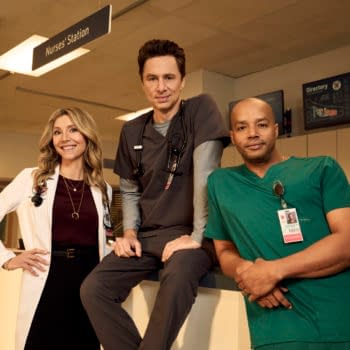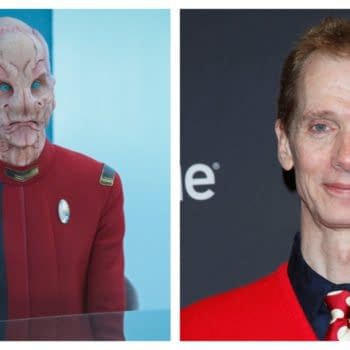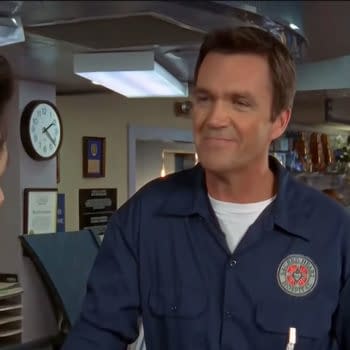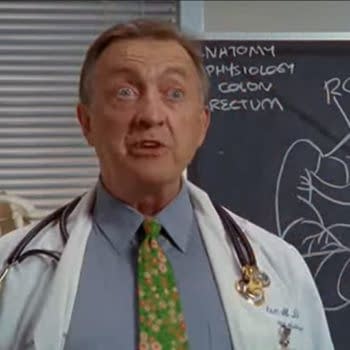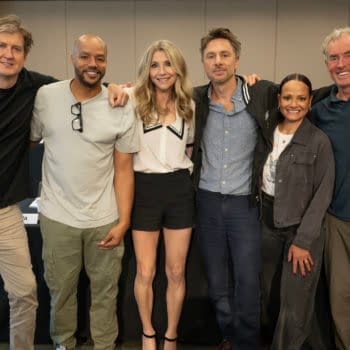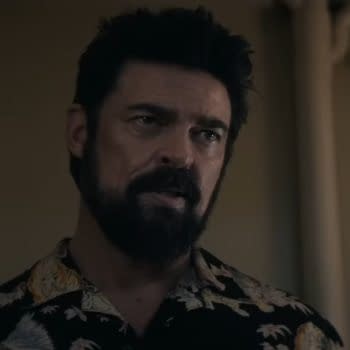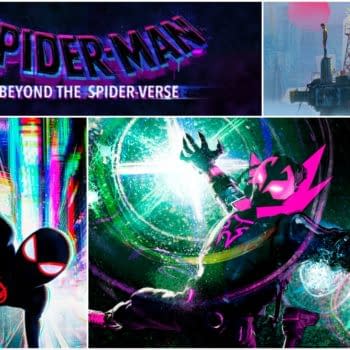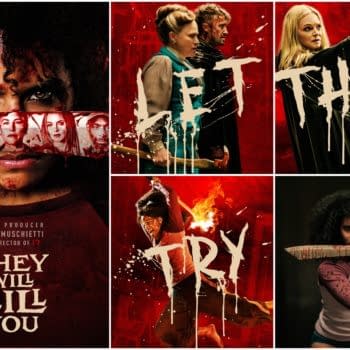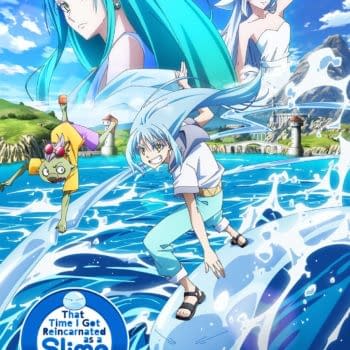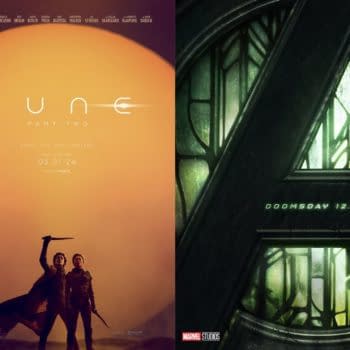Posted in: Exclusive, Interview, Lionsgate, Movies | Tagged: Brian O'Halloran, clerks, Clerks II, clerks iii, Dante Hicks, exclusive, interview, Jeff Anderson, lionsgate, Randal Graves
Clerks III: Brian O'Halloran & Jeff Anderson Talk Franchise's Legacy
Brian O'Halloran and Jeff Anderson probably never imagined the cultural phenomenon that Clerks would become when the film came out in 1994. Since then, the characters appeared in two sequels and an animated series and made several cameos throughout director Kevin Smith's View Askewniverse films. As the success of the original movie and its 2006 sequel was largely defined as comedies, there's been an evolution leaning on more serious issues to reflect on what's happened in Smith's life, and none have been more evident in the recent film. Both spoke to Bleeding Cool about their path to Clerks III, how the 2006 sequel gave more nuance to their characters of Dante Hicks and Randal Graves, how playing the characters after nearly three decades affected their lives, and comparing filmmaking today to 1994.
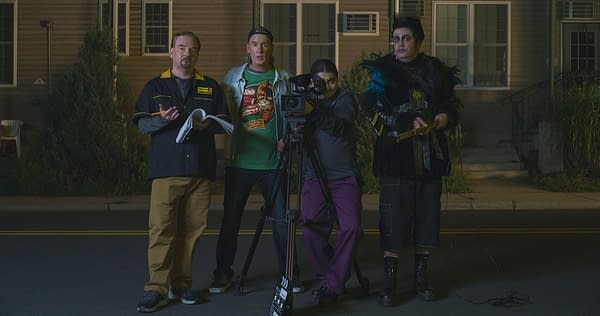
Clerks III: Back to the Quick Stop
Bleeding Cool: What were your initial thoughts on Kevin's initial 'Clerks 3' pitch?
O'Halloran: There was an initial attempt to make a 'Clerks III' about eight years ago. In the beginning, I was like, "All right, let's see where we go with this." We were given the script, and it was a much darker version of what we eventually wound up shooting. We were like, "Is this really what 'Clerks' is about?" I was on board about doing another 'Clerks.'
Anderson: As Brian said, it was a very dark script. It didn't feel like it fit in the 'Clerks' world. It would have been an unsatisfying movie for people because it was so dark, and without saying too much about it, it didn't feel right. I guarantee the fans wouldn't have been happy about it. Kevin has since talked about it, and he agrees that it was a very dark script, and he's much happier with the new version, which is the one people are seeing right now.
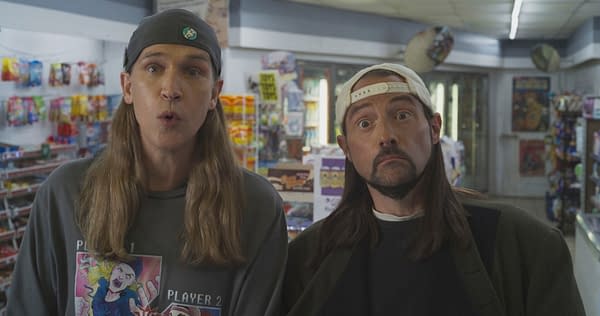
When it came to visiting those darker places and comparing them to the first two films' tones, how far deep did you guys go emotionally? Was it feel refreshing to go into that new layer for Dante and Randal?
With 'Clerks II,' we touched on it and the ending where Randall and Dante have the idea to buy the Quick Stop. That was Kevin's first foray into giving these guys a little more to do that and sit around and throw quips around. Number two was more about grooming us to prepare us for a more emotional story in number three. It was something that was building, but it wasn't hard to go to that place because a lot of it was in the writing. When you know the story and these characters, I mean, I won't speak for Bryan, but I'm a fan of these characters. The emotions were on the page in reading it [as an actor] and reading it as a fan. I didn't have a hard time going there.
O'Halloran: Same here. Living with these characters for the past 28 years, revisiting them from time to time with the cartoon 'Clerks' to 'Jay and Silent Bob Strike Back,' and so on, you grow attached to these characters. As Jeff says, writing is the great thing about working and portraying these characters. With Kevin's writing, he knows these characters because he's putting them through the paces of what he's gone through in his real life. The first film was about him working there, him and his good friend Bryan Johnson, who was the archetype of what Randal is. Moving on, he didn't work a fast food joint, but moving these characters to another scenario to bring in other characters like Rosario Dawson's character of Becky, Trevor Fehrman's character of Elias, and so forth, gave a broader breadth to where these guys would be in their thirties.
Revisiting them 15 years later, and now, they're going into their 50s and knowing where we had last left them off, where Dante was getting married with a child on the way. Seeing these life issues hitting these characters, you couldn't help but be emotionally invested in these characters and emotionally distraught when they're when their lives hit some tumultuous moments.
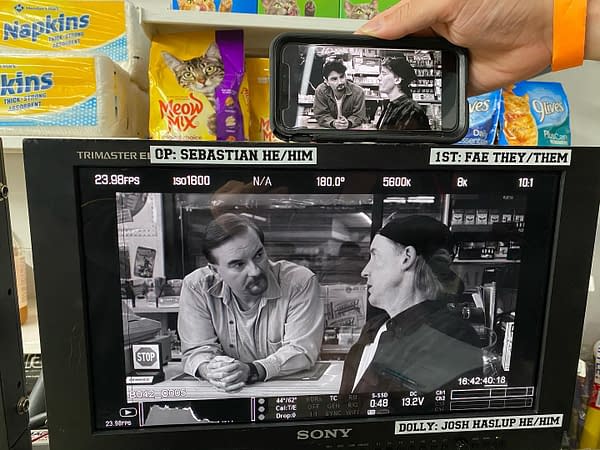
What is the takeaway from being around such characters for so long? What has playing the roles taught you most about being an actor and or life in general?
Anderson: I don't know if this answers your question, but the takeaway I've gotten from it has just been like this amazing experience. We've done this and 1993 is when we filmed it. I'm sure all of us thought nobody would ever see this movie. The fact it's held up all these years, meeting fans, getting fan letters, and stuff like that has changed our whole lives. That's the takeaway I got from [Clerks] is how beloved people feel about this movie and how great it is to get out there, meet the fans, talk to the fans, and hear their stories. When I reflect on it, that's the warm fuzzies take away.
O'Halloran: I would agree with that. Being a part of a film that had a weird storyline, a weird kind of making-of 'Cinderella'-kind of story going to Sundance and into a film festival that barely anybody saw it. Bob Hawk, who, thank God, influenced the industry passed the word around that you should see this film. They're going to Sundance, and they're being picked up and being able to work with such a prolific writer like Kevin, who wrote so many things and developed the friendships to work with him again and again in other films.
What I've taken away from it, as Jeff said, is the whole trip of this has been incredibly amazing and has allowed me to do some amazing things with even other filmmakers, who, for the most part, love what has happened with the 'Clerks' films and Kevin Smith films in general. I've been blessed with what I've taken away about it. In the end, as far as these characters were discussed in the first film about how 'Empire' [Strikes Back] had a better ending because that's what life is: a series of down endings. That's why this life of these characters had all these roadblocks that came in.
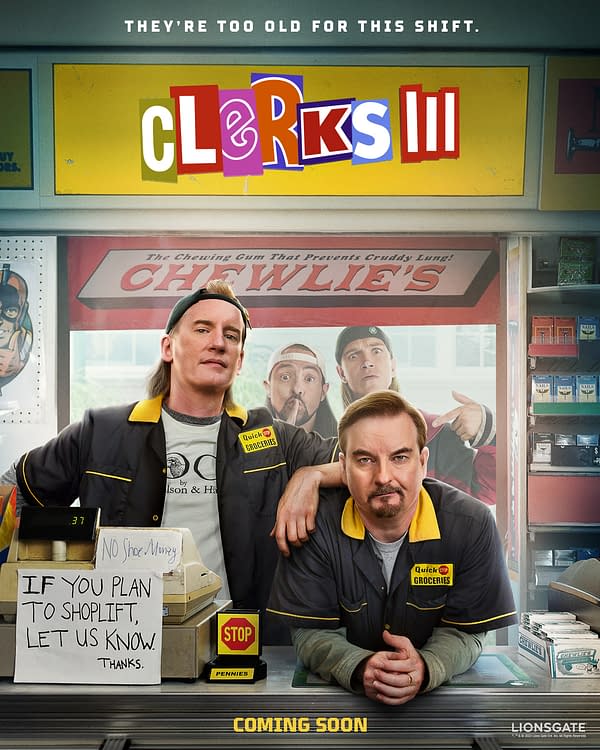
The independent filmmaking scene is dramatically different compared to when the original 'Clerks' was made. We have streamers proliferating various markets with opportunities that abound. How do you feel that the filmmaker has evolved over the years? Are there more opportunities than ever before?
Anderson: Over the years, I've often said, a large part of the success of 'Clerks,' or at least how it entered into the "film world" was a lot about timing. In 1994, independent film was just sort of becoming part of the vernacular. Nobody was talking very much about independent film. You had 'Pulp Fiction' coming out that year that pushed independent filmmaking into the spotlight. We could ride the coattails and get in under that "independent filmmaking" title.
Nowadays, anybody can make a movie. If you have a smartphone, you can make a movie and edit and do it. You have a million different places that you can show it. There are not only streaming services, but you could put it on YouTube; you could just put it on your website and get word of mouth. I tell people everywhere we go when people talk about 'Clerks,' and they say they're young filmmakers, they go out, do it, shoot on their phone, and do anything else. We are living proof that anything is possible.
O'Halloran: That's why we were fortunate to be the first film to have come out when there wasn't the Internet and where there wasn't the cell phone. We hustled like dudes who sold their music CDs out of the trunk of their cars. We were like, "Come see this film" kind of thing. We were very fortunate people who enjoyed what we were doing. Today with so many choices out there, yes, it could be lost like sand hitting the beach or a beautiful shell that's hitting the beach. There are a hundred or thousand other shells on this beach. What makes your shell that much more pretty? Go out, make the art, and tell your story. As you said, there are so many outlets to put things on, but tell the story, concentrate on the story, and make sure your story is something that you know should be heard kind of thing.
Lionsgate's Clerks III, which also stars Jason Mewes, Austin Zajur, Amy Sedaris, and Marilyn Ghigliotti, is available on digital and on 4k Ultra HD, Blu-ray, and DVD on December 6th.






